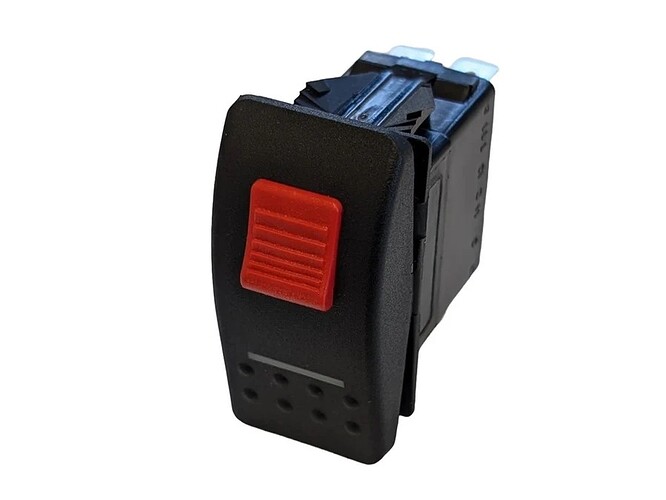Sorry for necromancing, but this thread is the only one I could find on this legal issue which I consider existencially important.
I’m not a lawyer, and this is in no way legal advice, just a humble question into the community.
I think we must clearly separate legal from technical security considerations.
Of course, you and we try best to avoid accidents.
But that’s of no use if the judge is not even asking you and me for formal reasons.
As far as I remember the legal situation, any modification in the steering system voids the admission to drive in public roads. At least that was German law in earlier times, and I’m quite sure that this is the same in all over EU now. Maybe only, that in other countries the authorities are not that pedantic about it.
Nevertheless, when there is an accicent with serious personal injury (forget the dog and the fence, and even forget some hundred €€ for fines), the insurance companies always will try to check for recourse (“regress”). Its part of their standard procedure. And they have good and many more lawyers than we have.
I’ve learned that (very!) large repair corporations even deny to produce hydraulic replacement hoses when they know that they go into the steering system. Odds are that they do so since they lost cases when they were held liable for accidents already.
@baraki , have you ever checked this?
Let’s compare the situation with the better known (since larger) motorcycle market. If you change handle bar, brake lining, brake pipe, brake disc etc for non genuine ones, usully the supplier gives you an ABE (generic approval??) whre it is listed that this particular part is tested for your type of bike.
Just compare those brake pipes:
I think the best for AgOpenGPS would be if @baraki, Keya and other suppliers of the systems attached to steering would strive for such and ABE. No clue what it costs, but I’d start asking my personal TÜV-Guy. Or the Kraftfahrbundesamt. Recently bought a polish car trailer (at a price below a baraki valve block), and I learned there are similiar offices in Poland as well.
Until then, and for any selfmade solution, if we want to comply to law when we leave our own premises, we’d need a “single permit” (Einzelabnhame), as @AndreasTT already mentioned, or “individual acceptance test report” (leo.org translation). I don’t think that it is that difficult nor expensive, if we go to the certifiers that use to work with farming, not to the TÜV at Berlin city.
And this “Einzelabnahme” is the place where you and we have to convince the (technically competent) certifier that our system is safely deactivated on the road etc…
May be that the first time, it may be a bit tedious, but I think it get’s easier with standardised solutions as the ones from baraki or keya.
May be you need another couple of €€ to get the modifications entered into the vehicles admission papers. I’ve once done it by adding a pneumatic brake system to one of my old Fendt GT and I think it was not much more than 100 € overall. Quite fair compared to be chased off your farm in the light of 100.000s and even millions in case of personal injuries.
The situation may be a little different when you stay on your own premises. Then your consideration regarding best care may be ok. I’d even hope that the burden of proof for security violation lies with the party claiming compensation.
And I’d expect similiar in case of an accident, if we have a correct certification from a “TÜV-like” agency. But if this is missing, I think that not only the burden of proof is shifted to the operator (and the shop who has performed the manipulation, and the supplier of the system). I think we may not even have the chance to be asked for proof.
I’d expect the judge to say “well, i’ve no clue regarding the technical details, so I had to ask a learned technician, but why should I if there is the easy formal way out”
So as a conclusion, I’d really urge the community to act in that question.
Anybody with me?
